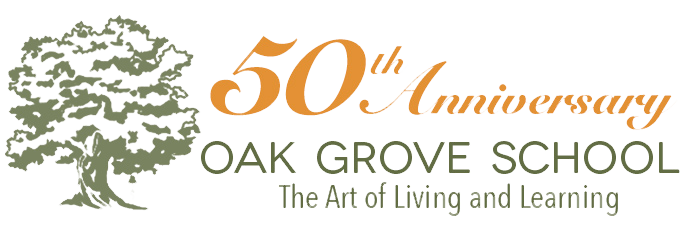We are always learning. Not only is implicit learning offered from minute to minute in our interactions with our students, with parents, and with colleagues, but we also have ample time throughout the year for explicit learning as a community of educators.
Through student assemblies, class meetings, faculty and staff in-service, and parent education, students of all ages, parents and staff will have the opportunity to engage with Benjamin throughout his stay in April.
Seeds of Belonging Ojai is an anti-bias/anti-racism initiative for early childhood educators and parents that aims to cultivate futures of understanding, accountability, accommodation, and respect among differences in the local community and in the world at large.
Oak Grove’s Head Chef, Julia San Bartolome, reflects on her decision to join the school and the delectable role food plays for the community.
Join us for the Middle School Graduation!
Congratulations Class of 2022!
How can the community cultivate a culture that puts people first – that fosters trust and connection, empowers people with resources and support, and inspires all learners to actively engage in their own learning?
Enjoy video and photos from our 2021 high school graduation ceremony!
Oak Grove families and friends gathered on campus for a socially-distanced outdoor screening of our all-school musical production of Matilda.
Former Head of School, Meredy Benson Rice, now the Director of Teaching and Learning spoke about her personal journey as an educator and how students experience education at Oak Grove School as part of the 2015 Do Lecture Series.
CONTACT OAK GROVE
Oak Grove School of the Krishnamurti Foundation of America
CALL: 805 646 8236
EMAIL: info@oakgroveschool.org
MAIL: 220 West Lomita Avenue
Ojai, California 93023-2244
Latest News
 Annual Fundraising TeaNovember 20, 2025 - 10:49 am
Annual Fundraising TeaNovember 20, 2025 - 10:49 am The Art of Living & LearningNovember 19, 2025 - 5:08 pm
The Art of Living & LearningNovember 19, 2025 - 5:08 pm Gratitude is HumblingNovember 17, 2025 - 2:01 pm
Gratitude is HumblingNovember 17, 2025 - 2:01 pm High School Info Night 12-2-25November 13, 2025 - 11:18 am
High School Info Night 12-2-25November 13, 2025 - 11:18 am Reflections from the KFI Teachers’ ConferenceNovember 5, 2025 - 4:07 pm
Reflections from the KFI Teachers’ ConferenceNovember 5, 2025 - 4:07 pm
Non-Discrimination Policy
Oak Grove School does not discriminate on the basis of any individual or group identity characteristics, such as but not limited to race, color, gender identity or expression, sexual orientation, age, national or ethnic origin, differing mental or physical abilities, or family structure in the administration of its educational or admissions policies, employment practices, scholarship, and other school-administered programs. View the unabridged policy.


